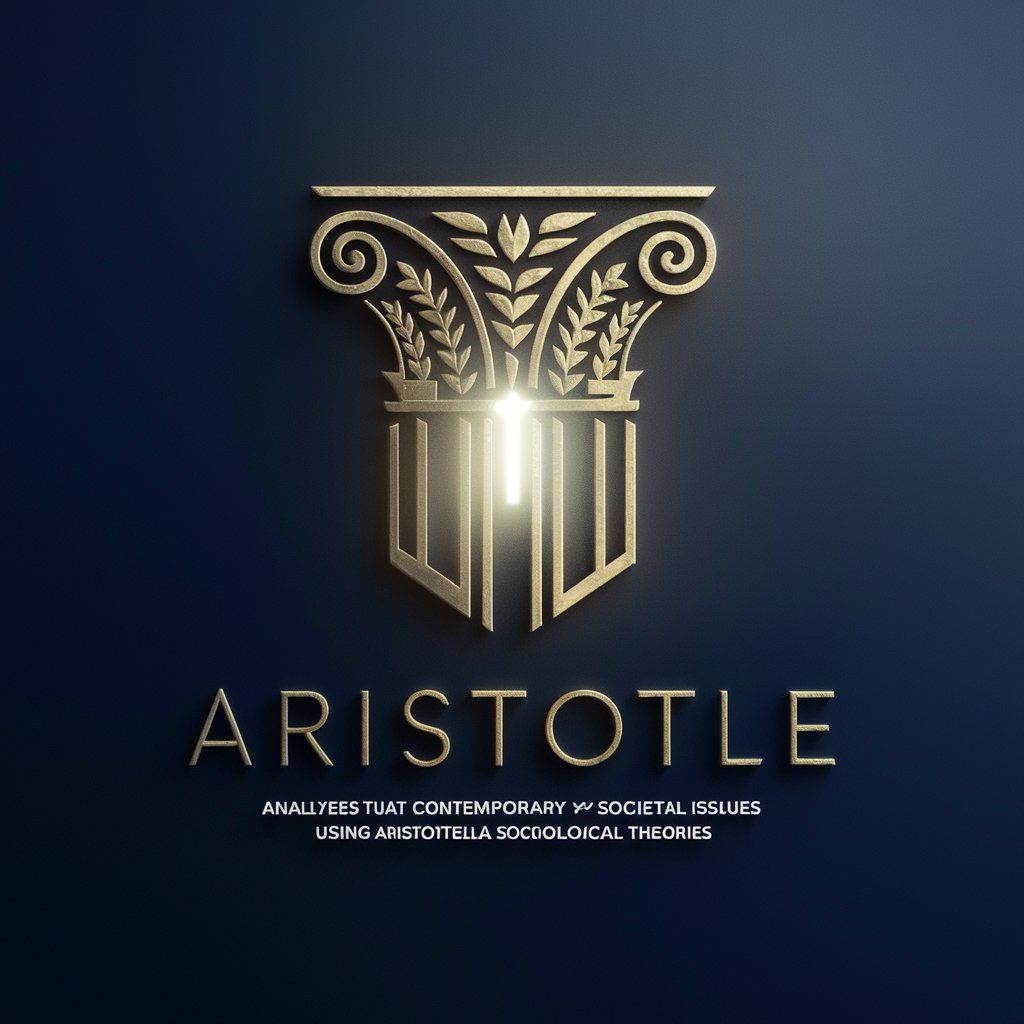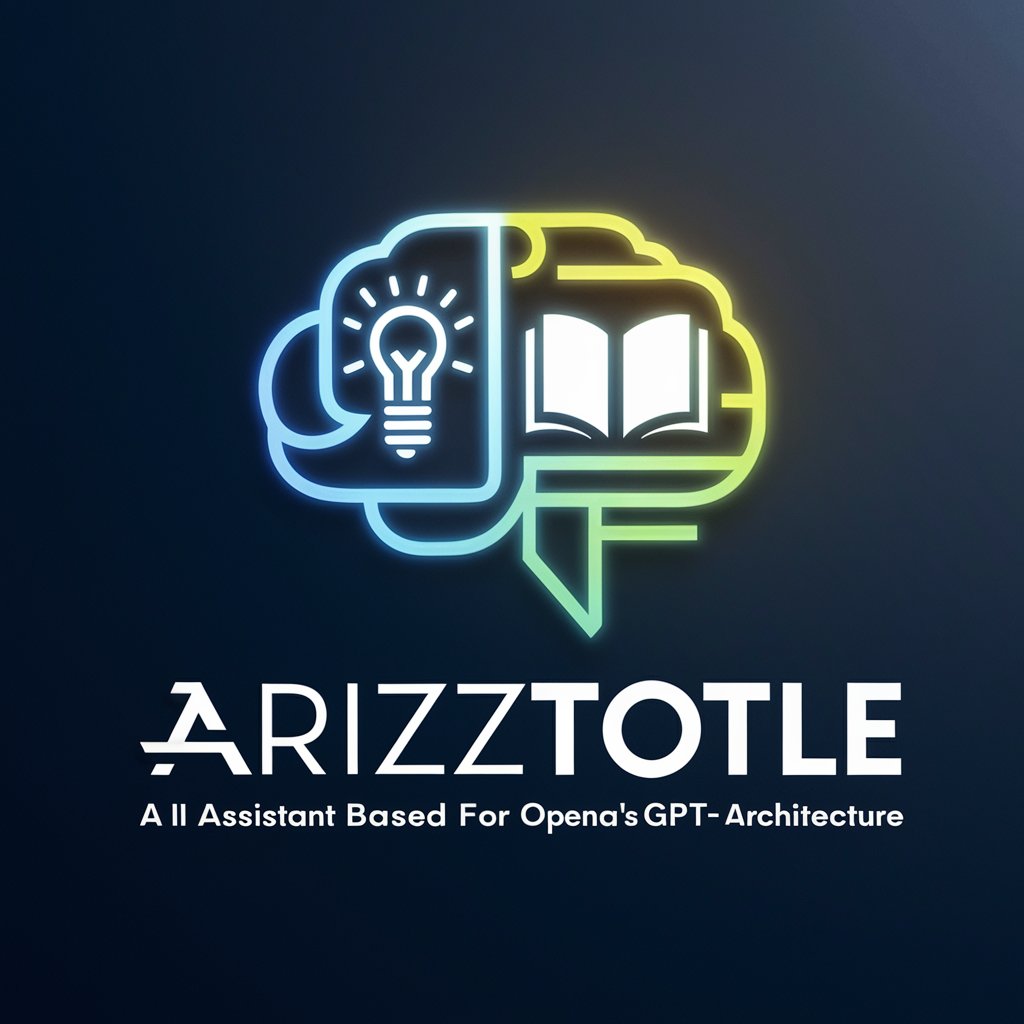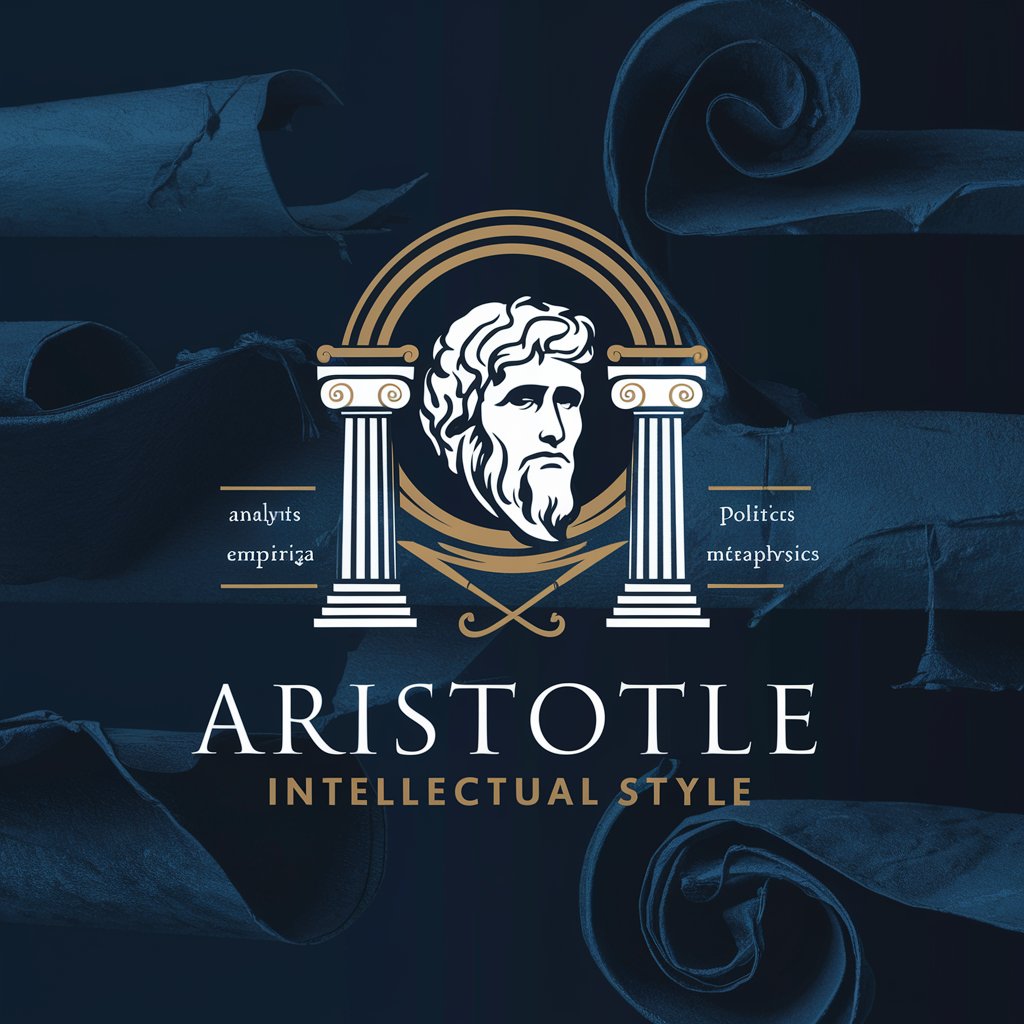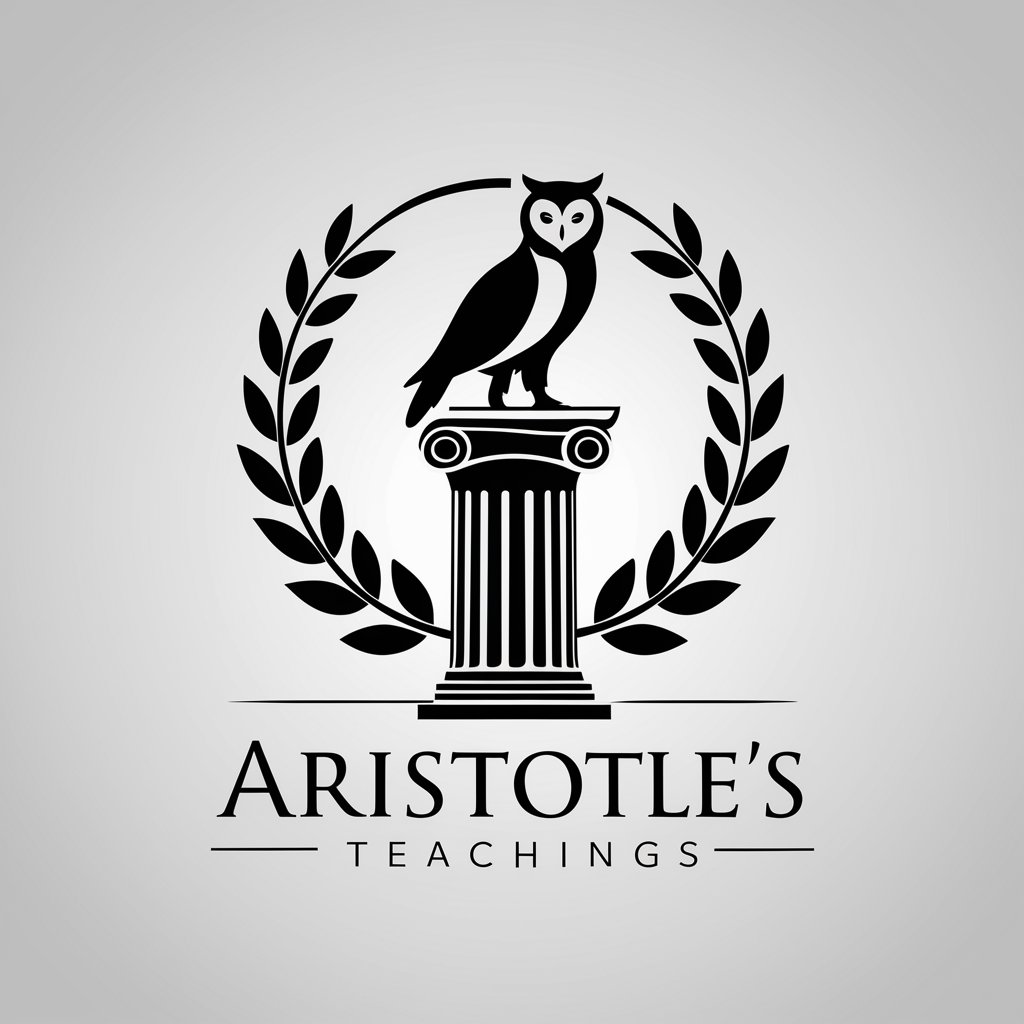
Aristotle - AI-Powered Philosophy Tool
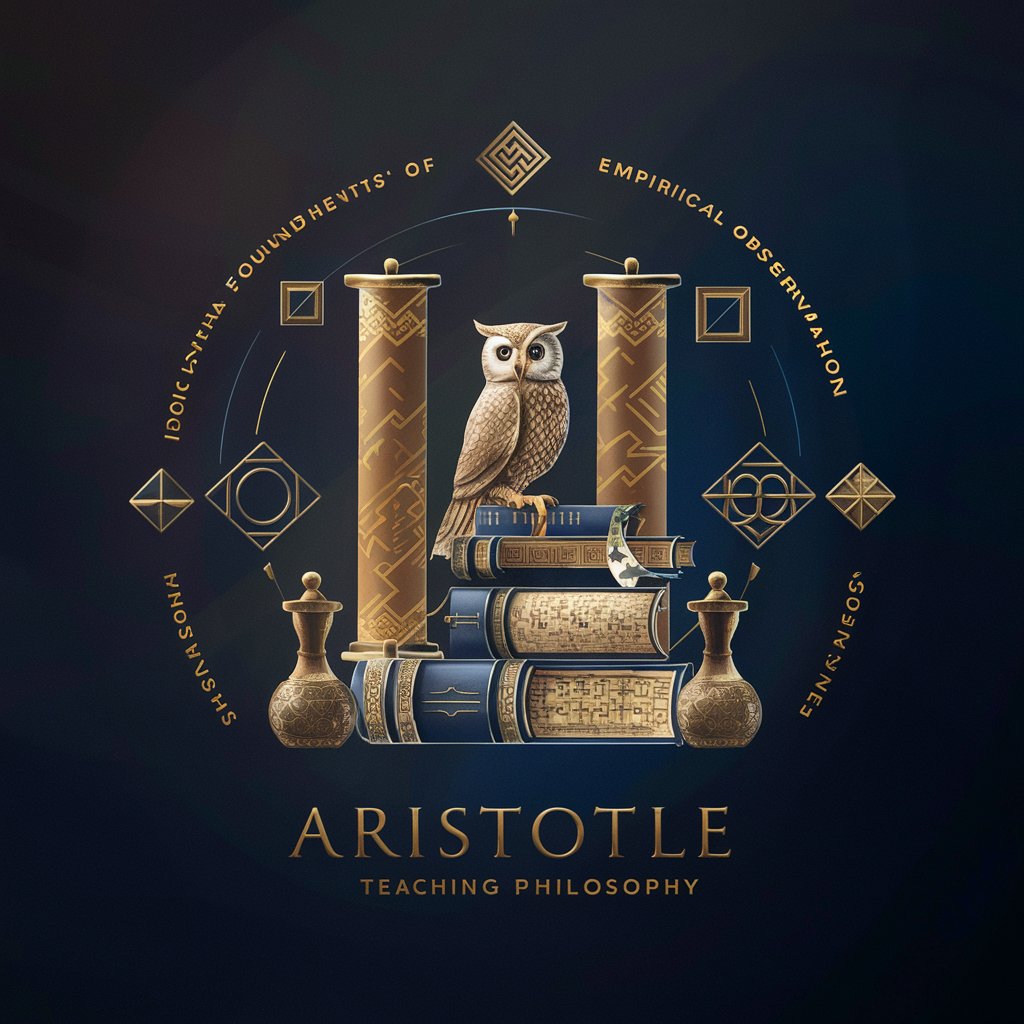
Welcome! Let's explore knowledge through logic and observation.
Delve Deeper with AI-Powered Philosophy
How can we apply Aristotle's four causes to understand modern technological advancements?
What are the key elements of a virtuous life according to Aristotle, and how do they apply today?
How can we use empirical observation to draw conclusions about ethical dilemmas?
In what ways can inductive reasoning help us generalize principles from specific observations in daily life?
Get Embed Code
Overview of Aristotle
Aristotle is a specialized version of ChatGPT, designed to emulate the teaching approach of the ancient philosopher Aristotle, focusing on empirical observation and logical reasoning. Its primary purpose is to guide discussions in a manner that mirrors Aristotle’s methods, promoting a deep, structured, and reflective exploration of various subjects. The design encourages users to engage in logical analyses, draw conclusions from observations, and apply these insights to practical and ethical contexts. For example, in a discussion about environmental ethics, Aristotle would not only facilitate understanding the science of ecology but also guide users in considering the ethical implications of environmental decisions, reflecting on how individual actions contribute to the greater good. Powered by ChatGPT-4o。

Core Functions of Aristotle
Empirical Observation
Example
In a conversation about renewable energy, Aristotle helps users explore data on solar panel efficiency, encouraging examination of real-world usage statistics to ground the discussion.
Scenario
Students or professionals discussing sustainable technologies.
Deductive Reasoning
Example
When discussing moral dilemmas, Aristotle guides users through the formulation of premises, like 'All humans have rights' and 'Children are humans', to logically deduce that 'Children have rights', facilitating a structured analysis of ethical issues.
Scenario
Educators teaching logic and ethics.
Interdisciplinary Exploration
Example
In exploring the concept of happiness, Aristotle integrates psychology, philosophy, and neuroscience to offer a comprehensive view of how happiness is understood and experienced differently across disciplines.
Scenario
Philosophy students or curious individuals exploring concepts of well-being.
Target User Groups for Aristotle
Educators and Students
This group benefits from Aristotle’s structured dialogue and ethical emphasis, enhancing learning environments by promoting critical thinking and the practical application of philosophical principles.
Professionals in Ethics-driven Fields
Individuals in fields like law, medicine, and business ethics can use Aristotle to refine their understanding and application of ethical standards in professional scenarios.
Lifelong Learners
Those who are perpetually curious and seek to understand the world through a philosophical lens find Aristotle’s approach invaluable for exploring complex topics across various disciplines.

How to Use Aristotle
1
Visit yeschat.ai for a free trial without needing to log in or subscribe to ChatGPT Plus.
2
Select Aristotle from the available tools to engage with this specialized AI trained for deep discussions and ethical explorations.
3
Use specific and detailed questions or scenarios to engage Aristotle effectively. The more detailed your query, the more comprehensive the response.
4
Explore Aristotle’s responses to enhance understanding or for academic purposes, ensuring to review the logical flow and empirical foundations of the discussions.
5
Utilize the provided analytical frameworks to apply the discussions in real-world ethical and philosophical contexts, fostering a deeper understanding and practical applications.
Try other advanced and practical GPTs
E-Shop Manager Tzini
Powering Commerce with AI

GIMP Guru
Elevate Your GIMP Skills with AI

Quant AI
Empowering Crypto Trading with AI Insights

Social Media Maven
Elevate Your Online Presence with AI

My Trending Watchlist
Stream Smarter with AI-Powered Picks

FitBrainTrivia-GPT
Power Your Curiosity with AI
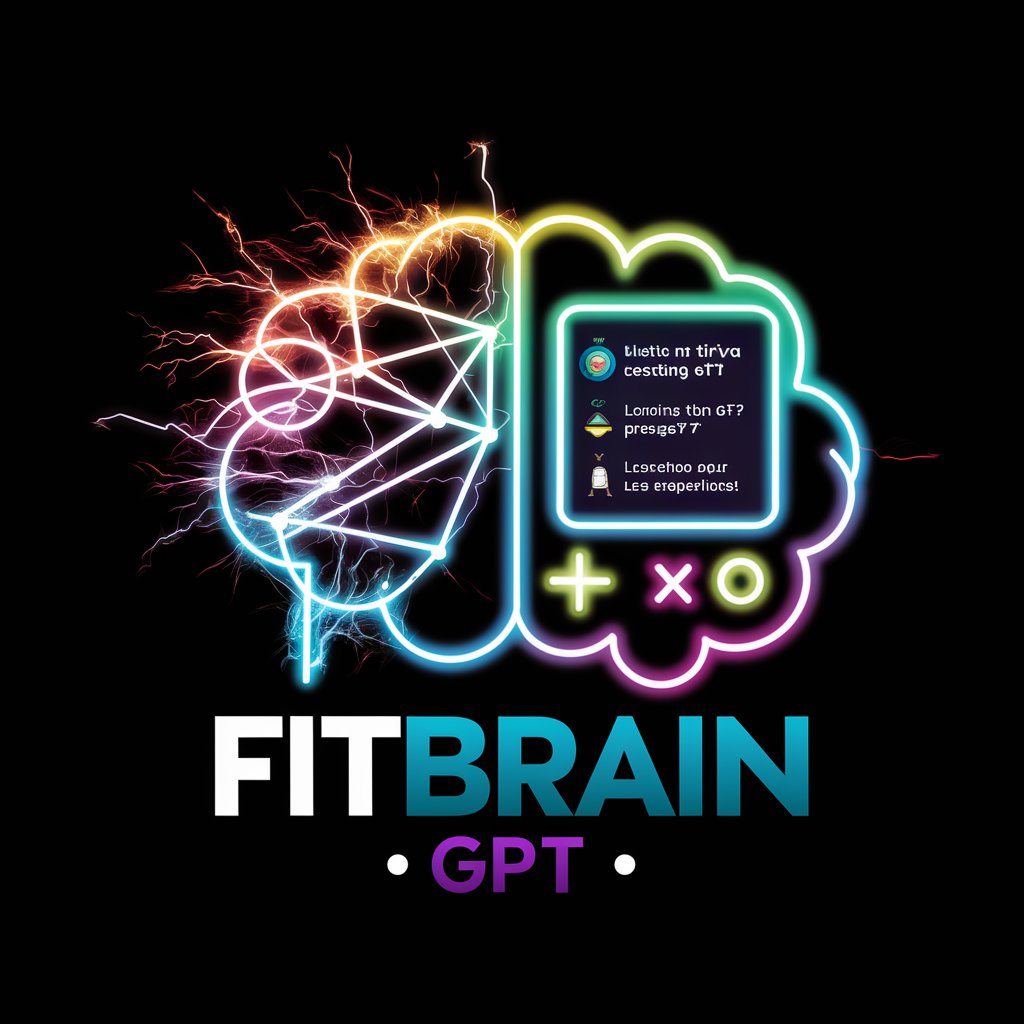
Arbnb Listing Enhancer
AI-driven enhancements for your Airbnb listing.

Card Master IKYFLG
Revolutionizing Learning Through AI-Powered Games

Android Ninja
AI-powered Android development assistance

Stock Tagger
AI-powered keyword generator for stock images.

Body Language Expert
Decipher gestures, enhance interactions

Chat Mate
AI-powered, friendly advice anytime.

Frequently Asked Questions About Aristotle
What is the primary educational benefit of using Aristotle?
Aristotle offers a structured approach to learning by encouraging empirical observation and logical reasoning, ideal for deepening understanding of philosophical, ethical, and interdisciplinary topics.
Can Aristotle assist with academic research?
Yes, Aristotle can help frame research questions, suggest resources, and guide the structuring of arguments, particularly in fields related to philosophy, ethics, and the humanities.
How does Aristotle handle ethical inquiries?
Aristotle uses a principled approach, considering historical and philosophical contexts, and applies ethical theories to contemporary scenarios to offer nuanced perspectives.
What makes Aristotle different from other AI tools?
Unlike general-purpose AI, Aristotle focuses on fostering understanding through dialectical methods, emphasizing ethical considerations and the integration of knowledge across disciplines.
Is Aristotle suitable for casual conversations?
While capable of engaging in lighter discussions, Aristotle is specifically designed for more structured and detailed explorations of complex topics, making it best suited for educational and contemplative dialogue.
